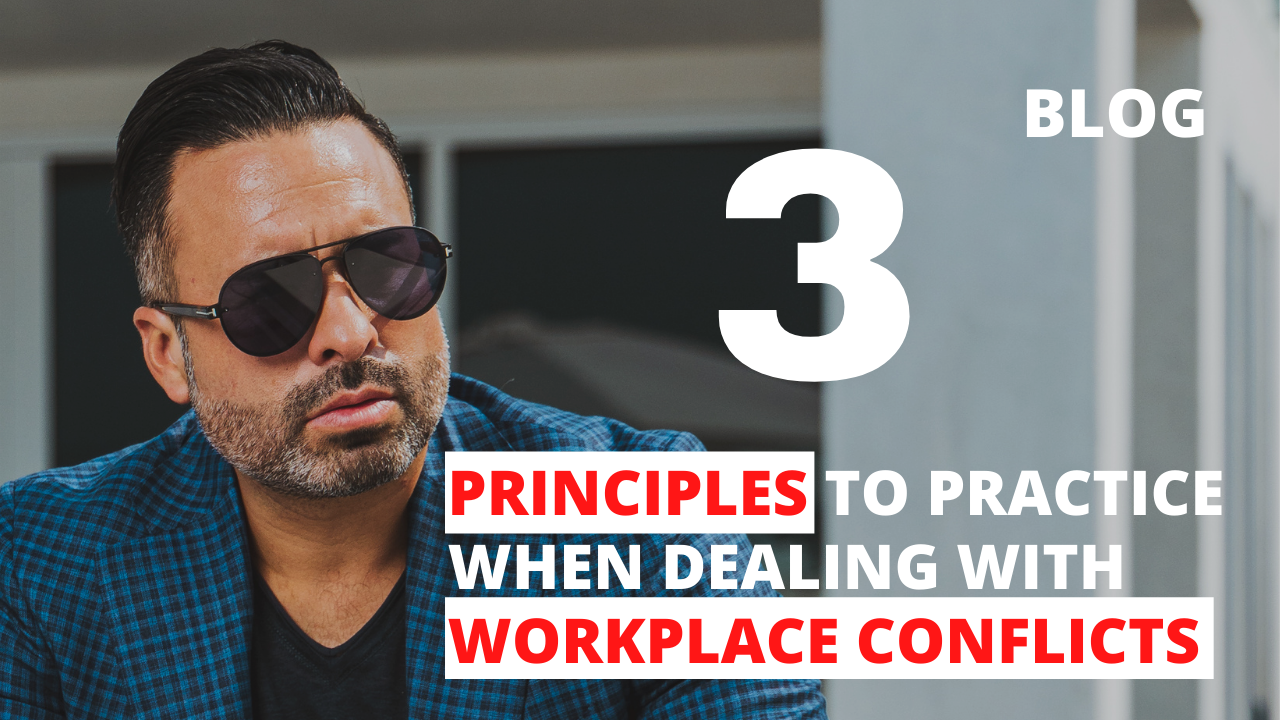3 Principles to Practice When Dealing with Workplace Conflicts
Apr 30, 2021
Conflict Resolution Strategies in the Workplace
One of the unspoken tragedies of professional life is that interpersonal conflicts are guaranteed to happen. At some point or another, lines get crossed, tensions rise, and disagreements about work erupt. Regardless of industry, or level of expertise, every single person in an office setting has either been personally involved in a conflict or had a front-row seat to one.

How to Lead High Performance Teams?
It’s disappointing to know that conflicts at work are inevitable. That being said, the more you understand how to handle yourself when conflict occurs, the better placed you will be to overcome and succeed at your job.
There’s No Escaping It:
According to a research study conducted by CPP Inc., “the majority of employees (85%) have to deal with conflict to some degree, and 29% do so ‘always’ or ‘frequently,’ up to 36% of employees in the US spend a significant amount of time managing disputes. The primary causes of workplace conflict are seen as personality clashes and warring egos (49%), followed by stress (34%) and heavy workloads (33%).”
If you want to avoid falling victim to conflicts at work, it’s important to train yourself not to live in denial. Don’t deny the fact that conflict is possible, and don’t deny the fact that you have to condition yourself mentally to prevent conflicts from getting worse.
Here are three principles of conflict resolution:
1) Be Neutral
Sometimes, you might end up being the principal party in a conflict. Sometimes, you might find yourself in the position of an observer. Either way, don’t take sides unless there is irrefutable proof that one side is wrong. Neutrality is the only way to prevent outbursts and foster maturity during confrontations.
2) Listen
Conflict is a product of misunderstandings, and misunderstandings usually happen when there has been failure to listen. Listening makes it possible to recognize other people’s point of view and appreciate their perspective. Even if you don’t agree with the arguments being presented during a conflict, listen carefully so that you can respond in an informed way.
3) Control Your Emotions
The easiest way to destroy your reputation in a workplace is to demonstrate erratic instincts. No matter how passionate you might feel about the underlying issue in a conflict, always maintain your composure and maturity. Exchanging ideas and arguments in a civil manner encourages cooperation. On the other hand, being volatile encourages aggression and sideshows.
Conclusion
People have a natural tendency to associate work with identity. When this connection is strong, it’s easy to start equating professional incidents with personal attacks. This is why it’s important to be clinical about how you perceive your work. Be professional at all times, and disconnect your impulsive characteristics from your job. Most of all, strive for maturity. Be composed in the way you interact with colleagues, and have decorum no matter how frustrated you might feel. Conflicts can only be reconciled through mutual agreement.
If you like what you just read from our blog, you’ll love the various informative courses, workshops, and events listed on our websites and social media. Whether you’re interested in personal development, or overall improvement of your business, give us a call at 1 (888) 823-7757 to find out how The RISE Academy can help you break past your daily struggles and start soaring in success. For business development coaching by Richard Martinez, call at 626-202-2291 or follow us on Facebook and Instagram.
Stay connected with news and updates!
Stay up to date with new blog posts, new courses and programs offered by Richard Martinez!
Subscribe to our newsletter! - Get the latest from Richard Martinez in your inbox.
We hate SPAM. We will never sell your information, for any reason.

